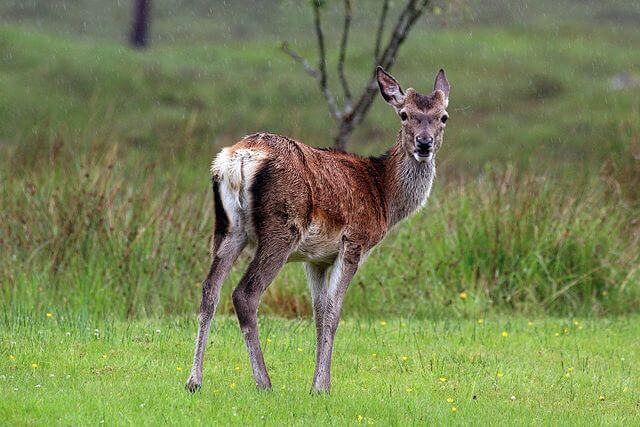
The National Trust highlights the disruptive impact of climate change on nature, causing “chaos” with unpredictable weather patterns.
This disturbance is characterised by a “baseline shift” in seasons, notably affecting the behaviours of animals and the well-being of trees and plants.
“The incremental shifts we’re experiencing in terms of our seasons extending may not feel like much in a 12-month period, but over a decade the changes are extremely significant”, said Ben McCarthy, head of Nature and Restoration Ecology at the National Trust.
The National Trust manages estates across England, Wales, and Northern Ireland, observing the consequences of climate change on its sites.
In 2023, the UK experienced record temperatures, including the warmest June and highest sea temperatures along the coast. An unusually warm winter facilitated the thriving of pests and diseases.
Insufficient rainfall coupled with high temperatures led to low water levels in rivers, lakes, and reservoirs, contributing to algal blooms and, in some cases, mass fish deaths due to oxygen depletion.
Additionally, severe storms like Babet and Ciaran damaged landscapes and coastlines, exemplifying the diverse impacts of climate change on the environment. The changing seasons are evident in local parks and gardens, with mowing extending later into the year. Rangers and gardeners attribute these alterations to increasingly warm and wet conditions.
The National Trust underscores the vulnerability of plants, particularly shrubs, to premature blooming followed by sudden cold snaps. This impacts pollinators and the birds relying on seed availability.
The iconic oak tree faces increased threats due to rising temperatures. Shorter cold spells no longer suffice to eliminate diseases, allowing pests like the oak processionary moth to thrive and make oaks susceptible to additional parasites.
The impact extends to heathlands, where warmer winters enable the spread of the heather beetle, leading to extensive plant loss. Hibernating animals, such as dormice, emerge earlier, depleting their vital energy stores.
Red deer, adapting to changing conditions, exhibit altered reproductive cycles, with calves born in autumn rather than summer.
“They’re unable to get the fat reserves on to get them through the winters,” Simon Powne, National Trust Wildlife Manager at Holnicote Estate explains.
“These weather conditions take the heat and energy out of anything and they’re just not capable of surviving. So we’re seeing a higher mortality rate.”
While the UK has experienced relatively moderate extreme weather compared to other countries, the National Trust warns of increasing vulnerability to extreme events in the future.
Keith Jones, the National Climate Change consultant, points to the devastating heatwaves in Europe and anticipates the UK will face similar challenges.
“We can’t allow ourselves to be lulled into any sense of false security. In the near future we are likely to experience a combination of drought and high temperatures as well as high rainfall and floods – and we need to get ready for this new “norm”, Mr Jones says.
To enhance resilience, the National Trust advocates for landscape and ecosystem interventions. A notable example is the restoration of the River Aller on the Holnicote Estate in Somerset.
The river, previously straightened and deepened, has been allowed to meander freely, creating wetlands. This effort aims to slow the river’s flow, combat flooding and drought, enhance wildlife diversity, and store more carbon in the landscape over time.
“Let the water do what it wants to do,” explains Jo Neville, the National Trust’s Water Advisor for Southern England and Wales. “And what it wants to do is make this amazing habitat with channels all the way through the landscape, pools, ponds, wetlands.”
“At Holnicote we literally saw more nature move back in, within just three months of the project’s completion as this new complex waterscape started to “bed in” and thrive,” explains Mr McCarthy.
As climate change continues to impact ecosystems, adaptive strategies become crucial to safeguarding the natural world.
——————————————————————————
At Natural World Fund, we are passionate about stopping the decline in our wildlife.
The decline in our wildlife is shocking and frightening. Without much more support, many of the animals we know and love will continue in their decline towards extinction.
When you help to restore a patch of degraded land through rewilding to forests, meadows, or wetlands, you have a massive impact on the biodiversity at a local level. You give animals a home and food that they otherwise would not have had, and it has a positive snowball effect on the food chain.
We are convinced that this is much better for the UK than growing lots of fast-growing coniferous trees, solely to remove carbon, that don’t actually help our animals to thrive.
This is why we stand for restoring nature in the UK through responsible rewilding. For us, it is the right thing to do. Let’s do what’s right for nature!
Donate today at https://naturalworldfund.com/ and join in the solution!

